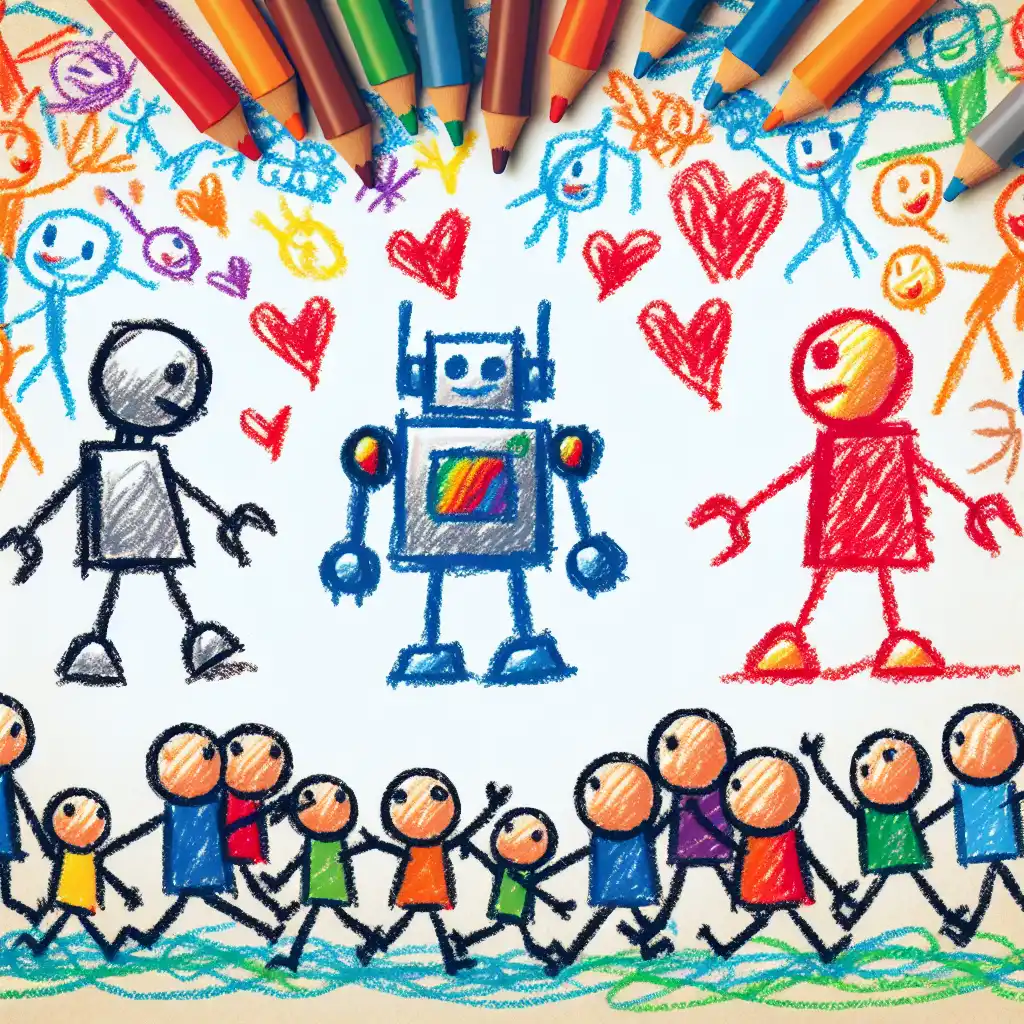People like extroverted robots — but they relate to the neurotic ones

Explain Like I'm 5
Imagine you have two robot friends. One is super outgoing and loves to talk and play games with everyone. Most people think this robot is really fun. But the other robot is a bit like Eeyore from Winnie the Pooh—sometimes worried or nervous. Surprisingly, when people see this shy robot acting a bit nervous, they feel like it's more like them, like a real friend who has good days and bad days. It's like how sometimes you might feel closer to a friend who shares their worries with you, not just their fun stories!
Explain Like I'm 10
So, we're talking about robots with different personalities. One type is the extroverted robot, who is like the life of the party, always ready to engage and be super friendly. People generally find these robots fun and likeable because they're always upbeat and active. But then, there's another type—the neurotic robot. This robot shows feelings like worry and nervousness, kind of like how people do. It turns out that when people see robots acting this way, they can relate more easily to them. They see these robots as more "human-like" because they show emotions that aren't always happy or perfect. It's a bit like how you might trust a friend more when you know they have feelings like yours, not just someone who is always smiling and never seems to have a problem.
Explain Like I'm 15
Diving deeper, the concept of robot personalities isn't just about making them fun or relatable; it's about understanding human-robot interaction on a psychological level. Extroverted robots are typically designed to be engaging and proactive, which makes them great for roles in customer service or entertainment, where they need to initiate interactions and keep people engaged. However, researchers have found that robots displaying what we consider neurotic traits—like anxiety or self-doubt—can appear more relatable and human-like. This connection happens because these traits reflect real human emotions and vulnerabilities, making the robots seem more familiar and easier to empathize with.
This fascination with neurotic robots isn't new; it's been a theme in science fiction for a long time, where the most memorable robots often have complex, sometimes troubled personalities that audiences find compelling. The real-world application of these findings could change how we design robots for personal use, therapy, or social interactions, emphasizing the importance of robots being able to exhibit a range of emotions that mirror our own. This could lead to more effective communication and bond-forming with robots, as people might feel more emotionally connected to machines that seem to "understand" human feelings. What will be interesting to see next is how these insights are implemented in robot design and what new roles robots might take on as they become more emotionally nuanced.
Want to read the original story?
View Original Source